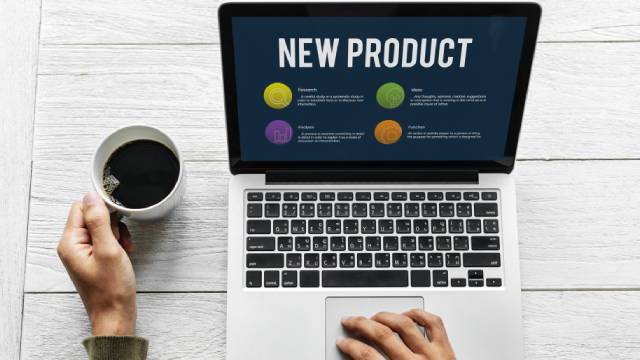KKR & Co. (KKR – Free Report) shares have witnessed a stellar performance in the past year. The stock has skyrocketed 83.6% compared with the industry’s rise of 39.9%. KKR’s peers Apollo Global Management (APO – Free Report) and Janus Henderson Group plc (JHG – Free Report) have gained 87.9% and 47.7% over the same time frame, respectively.
Price Performance
 Image Source: Zacks Investment Research
Image Source: Zacks Investment Research
The KKR stock is trading above its 50-day moving average, indicating bullish sentiments among the investors.
50-Day Moving Average

Image Source: Zacks Investment Research
Let us find out whether now is the right time to buy the KKR stock or wait for a better entry point.
KKR’s Impressive AUM Growth
The company’s total assets under management (AUM) have been witnessing improvements over the years. The metric saw a five-year (2018-2023) compound annual growth rate (CAGR) of 23.2%, with the trend continuing in the first nine months of 2024. The company’s efforts to improve and add investment strategies continue to support AUM growth.
At its 2024 investor day held in April, KKR laid out a plan to scale its core businesses as it aims to reach at least $1 trillion in AUM in five years. The firm intends to build on its existing asset management, insurance and strategic holding units to reach the milestone.
KKR’s Ambitious Targets
The company expects to raise more than $300 billion of capital by 2026. KKR expects to raise capital across 30 investment solutions and three flagship strategies — North America private equity (“PE”), Asia PE and global infrastructure. The company expects the massive and untapped private wealth channel to create an $11-trillion market opportunity by 2027.
KKR projects fee-related earnings per share to be more than $4.50 (which implies a 2023-2026 CAGR of 20%).
Total operating earnings are projected to exceed $7 per share.
Adjusted net income per share is anticipated to be $7-$8 (implying a 2023-2026 CAGR of 30%). The company also seeks gain on earnings per share to reach $15 in 10 years or less.
KKR’s Robust Balance Sheet & Solid Liquidity
The company enjoys a decent balance sheet. As of Sept. 30, KKR had an outstanding debt of $8.8 million, lower than the cash and investments of $16.3 million. Also, the company is ‘A’ rated by the S&P and Fitch. Hence, given a decent liquidity position and manageable debt levels, the company is less likely to default on interest and debt repayments in the near term, even if the economic situation worsens.
KKR continues to reward shareholders handsomely. In March 2024, the company hiked its dividend by 6% to 18 cents per share. In the last five years, it hiked dividends five times, with an annualized growth rate of 7.1%. Currently, the company’s payout ratio is 19% of earnings.
Apart from dividends, the company has a share repurchase plan in place. In April 2024, the company’s board of directors amended a share repurchase program so that when the remaining available amount under the share repurchase program becomes $50 million or less, the total available amount under the share repurchase program will automatically add $500 million to the remaining available amount. As of October 2024, there was approximately $69 million of authorization remaining under the program.
Analyst Sentiments Bullish for KKR
Earnings estimates for KKR for 2024 and 2025 have revised upward over the past 60 days. The positive estimate revision depicts bullish sentiments for the stock.
Estimate Revision Trend

Image Source: Zacks Investment Research
The Zacks Consensus Estimate for KKR’s 2024 earnings implies 37.7% year-over-year growth, whereas that for 2025 earnings indicates a 30% rise on a year-over-year basis.
Is KKR Stock Worth Considering Now?
The company’s impressive AUM growth and ambitious long-term targets indicate its consistent and strong growth prospects. Also, KKR’s efforts to improve and add investment strategies will continue to aid its financials. Its solid liquidity position will aid capital distribution activities.
However, in terms of valuation, the stock seems expensive relative to the industry. The stock is currently trading at the forward 12-month price/earnings (P/E) of 24.96X. This is above the industry’s 18.57X, reflecting a stretched valuation. KKR is also trading at a premium compared with its peers APO and JHG’s P/E multiples of 20.38X and 18.43X, respectively.
Price-to-Earnings F12M

Image Source: Zacks Investment Research
Management expects expenses to rise modestly over time as placement fees will increase as fundraising continues to ramp up. This might affect company financials to some extent in the upcoming period.
Considering the pros and cons of KKR, we may conclude that investors should refrain from rushing to buy KKR stock right now. Its premium valuation also warrants caution. Investors can keep this stock on their radar and wait for a better entry point.
Those who already own the stock can hold on to it because it is less likely to disappoint over the long term.
KKR currently carries a Zacks Rank #3 (Hold). You can see the complete list of today’s Zacks #1 Rank (Strong Buy) stocks here.
Financial Market Newsflash
No financial news published today. Check back later.



